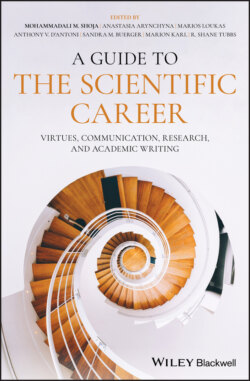Читать книгу A Guide to the Scientific Career - Группа авторов - Страница 92
9.5 A General Criticism on the Use of Metrics
ОглавлениеAlthough the use of single metrics (based on bibliometric measurements) for the comparison of researchers has steadily gained popularity in recent years, there is an ongoing debate regarding the appropriateness of this practice. The question is whether single measures of research performance are sufficient to quantify such complex activities. A report by the Joint Committee on Quantitative Assessment of Research argues strongly against the use of citation metrics alone as a tool in the field of mathematics. Rather, the committee encourages the use of more complex methods for judging the impact of researchers; for example, using evaluation criteria that combines citation metrics with other relevant determinants, including membership on editorial boards, awards, invitations, or peer‐review activities (Adler et al. 2008). Along these lines, Egghe (2007) stated earlier, “The reality is that as time passes, it's not going to be possible to measure an author's performance using just one tool. A range of indices is needed that together will produce a highly accurate evaluation of an author's impact.” Shortly thereafter, Bollen et al. (2009) offered empirical verification of Egghe's intuitive hypothesis. Based on the results of a principal component analysis (PCA) on a total number of 39 existing indicators of scientific impact, an argument was made that ideal scientific impact should be multidimensional and cannot be effectively measured by a single numeric indicator.
